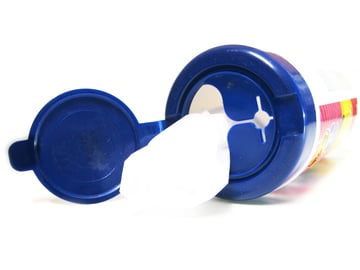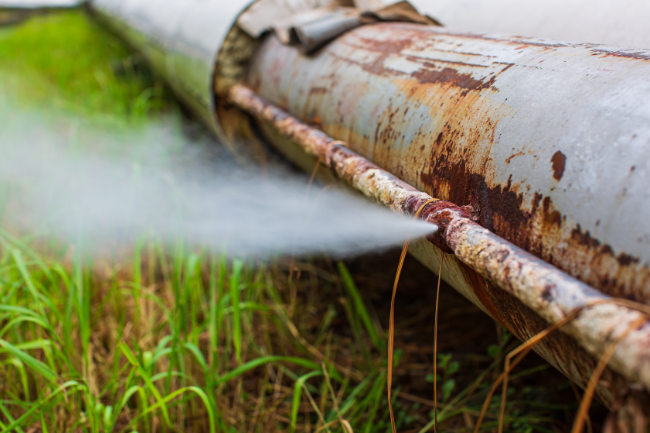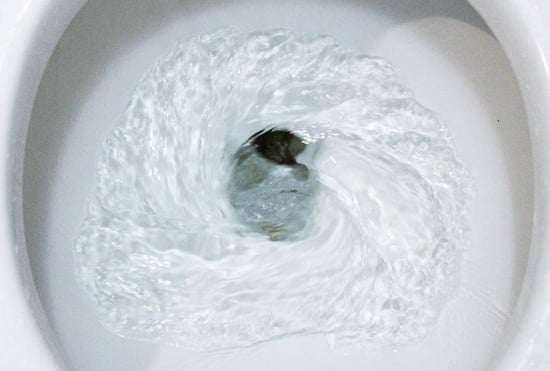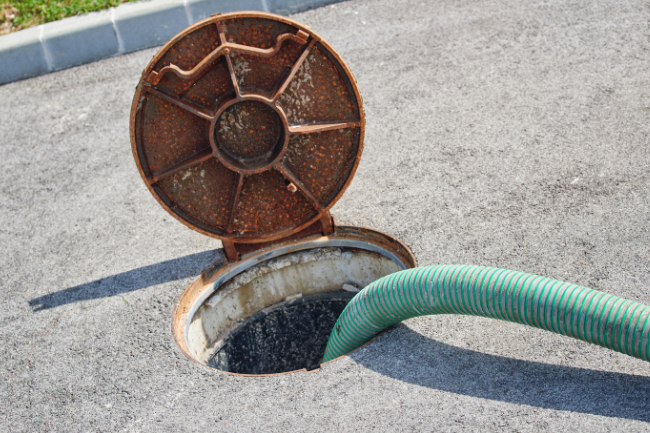Do Flushable Wipes Damage Sewer Systems?
Posted by William Heinselman on
 While flushable, pre-moistened wipes have surged in popularity in recent years, concerns about their safety within sewer systems has also grown. They say they’re “flushable,” but do these products really break down and process in the same way as toilet paper?
While flushable, pre-moistened wipes have surged in popularity in recent years, concerns about their safety within sewer systems has also grown. They say they’re “flushable,” but do these products really break down and process in the same way as toilet paper?
Cutting to the chase, yes, these types of wipes can do significant damage to sewer systems, largely because they don’t dissolve in the same way as toilet paper. In fact, very recently, these products were identified as the main cause of tens of millions of dollars in sewer damage across the United States. In this blog, we tackle the “flushable” wipe problem, and give some insight into steps you can take to protect your municipal sewer system.
A Growing Nationwide Pandemic
In the States, the flushable wipe problem is growing with every flush, costing cities from New York to California millions of dollars in equipment repair and waste removal. A March 13, 2015 article in the New York Times assesses the rising issue in full, providing the following explanation:
“[New York City] has spent more than $18 million in the past five years on wipe-related equipment problems, officials said. The volume of materials extracted from screening machines at the city’s wastewater treatment plants has more than doubled since 2008, an increase attributed largely to the wipes.”
Sale of flushable wipes has grown over 20% since 2008, and with that growth has come more frequent flush disposal. This has left officials in cities throughout the country scrambling for a counter, lest their sewer systems fall victim to, what the Times calls, a wipe “superknot.”
One such countermeasure is prohibiting the advertisement of these wipes as “flushable,” and instead listen them as trash disposable, which is exactly what many are campaigning for within their municipalities. While some wipe companies explicitly list their products as trash-only, there are still others who keep the term “flushable” in their advertisements.
“Flushable” wipes do not dissolve in the same way as toilet paper. Toilet paper quickly breaks down when flushed, allowing for easy, zero-risk processing. However, when products like wet wipes are flushed away, they break down at a snail’s pace, if at all. As they flow through sewer lines, they accumulate and cluster into tight, wet masses. These mounds of waste then often cause sewer mainline clogging, or worse, severe damage to water treatment equipment.
So, yes, flushable wipes can (and are) doing considerable damage to sewer systems throughout the United States. In California, the problem has grown locally much like it has on the national level. While the Sacramento Area Sewer District acknowledges the rising issue, there are things residents and building owners can do to mitigate the problem.
Even though consumers are no way at fault for flushing away products that feature “flushable” on their containers, everyone can do their part by disposing wipes properly (in the trash), and understanding how much damage these products are truly doing.
Other Paper Products That Cause Sewer Damage
While wet wipes are at the forefront of this plumbing pandemic, they’re not the only culprit. There’s a number of other products millions of homeowners flush away every day that can clog sewer pipes or do significant damage to processing equipment. The following are common products beyond wet wipes that clog sewers, along with what percentage they comprise of all improperly flushed materials as estimated by the INDA (Association of the Non-woven Fabrics Industry):
- Non-flushable paper products (paper towels, napkins, etc.); the leading clog agent, making up 47 % of all non-flushable material commonly flushed.
- Baby wipes; 18% of all non-flushable products detected
- Other household wipes, such as medicated or cosmetic; 14% of non-flushable materials
- Non-flushable hygiene products; 13% of non-flushable materials
In fact, “flushable” wipes make up roughly 8% of all improperly flushed paper products; however, though they’re less frequently flushed, they cause the most problems as far as clogging goes. Even if your wet wipes are advertised as “flushable,” don’t make the same mistake millions of other Americans make every year. Keep your sewer systems healthy and clear of these products.
Topics: Sewers







